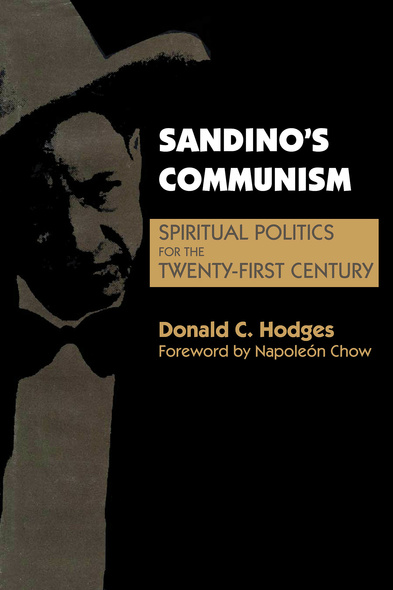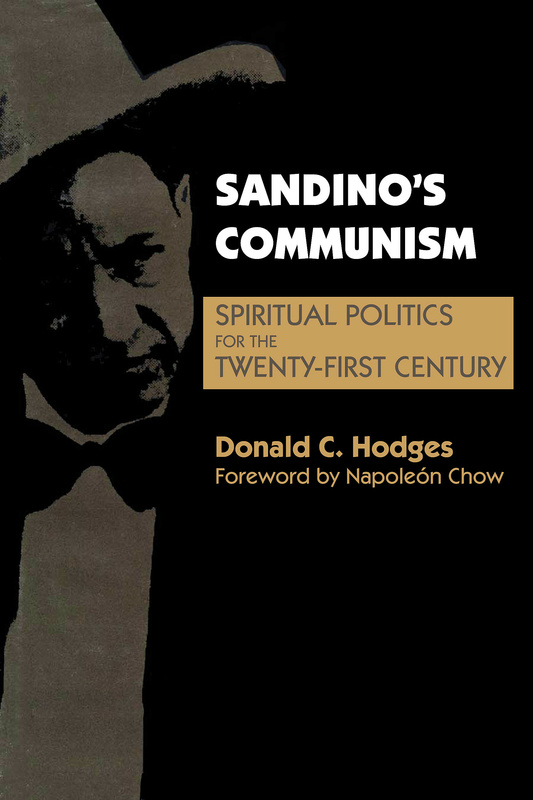Sandino's Communism
Spiritual Politics for the Twenty-First Century
Drawing on previously unknown or unassimilated sources, Donald C. Hodges here presents an entirely new interpretation of the politics and philosophy of Augusto C. Sandino, the intellectual progenitor of Nicaragua's Sandinista revolution.
The first part of the book investigates the political sources of Sandino's thought in the works of Babeuf, Buonarroti, Blanqui, Proudhon, Bakunin, Most, Malatesta, Kropotkin, Ricardo Flores Magón, and Lenin—a mixed legacy of pre-Marxist and non-Marxist authoritarian and libertarian communists.
The second half of the study scrutinizes the philosophy of nature and history that Sandino made his own. Hodges delves deeply into this philosophy as the supreme and final expression of Sandino's communism and traces its sources in the Gnostic and millenarian occult undergrounds. This results in a rich study of the ways in which Sandino's revolutionary communism and communist spirituality intersect—a spiritual politics that Hodges presents as more realistic than the communism of Karl Marx.
While accepting the current wisdom that Sandino was a Nicaraguan liberal and social reformer, Hodges also makes a persuasive case that Sandino was first and foremost a communist, although neither of the Marxist nor anarchist variety. He argues that Sandino's eclectic communist spirituality was more of an asset than a liability for understanding the human condition, and that his spiritual politics promises to be more relevant than Marxism-Leninism for the twenty-first century. Indeed, Hodges believes that Sandino's holistic communism embraces both deep ecology and feminist spirituality—a finding that is sure to generate lively and productive debate.
. . . a fascinating study of a thinker used to legitimate a revolution that appears to be somewhat foreign to his own ideology and politics . . . . provide(s) a new and innovative understanding of Sandino and the Sandinista Revolution.
Donald C. Hodges (1923–2009) was Professor of Philosophy at Florida State University, Tallahassee.
- Foreword by Napoleón Chow
- Introduction: Understanding Sandino’s Legacy
- Part One. Sandino’s Politics
- 1. Red and Black
- 2. Property Is Theft
- 3. People’s War, People’s Army
- 4. The Conspiratorial Vanguard
- 5. The Comintern Connection
- Part Two. Sandino’s Philosophy
- 6. The Flag of Many Colors
- 7. God Punishes Proprietors
- 8. Pursuing the Millennium
- 9. The Scriptures Unveiled
- 10. From Solomon’s Temple to Moses’s Kabbalah
- Conclusion: The Relevance of Sandino’s Communism
- Postscript
- Appendix: Sandino’s Suppressed Legacy
- Notes
- Bibliography
- Index





